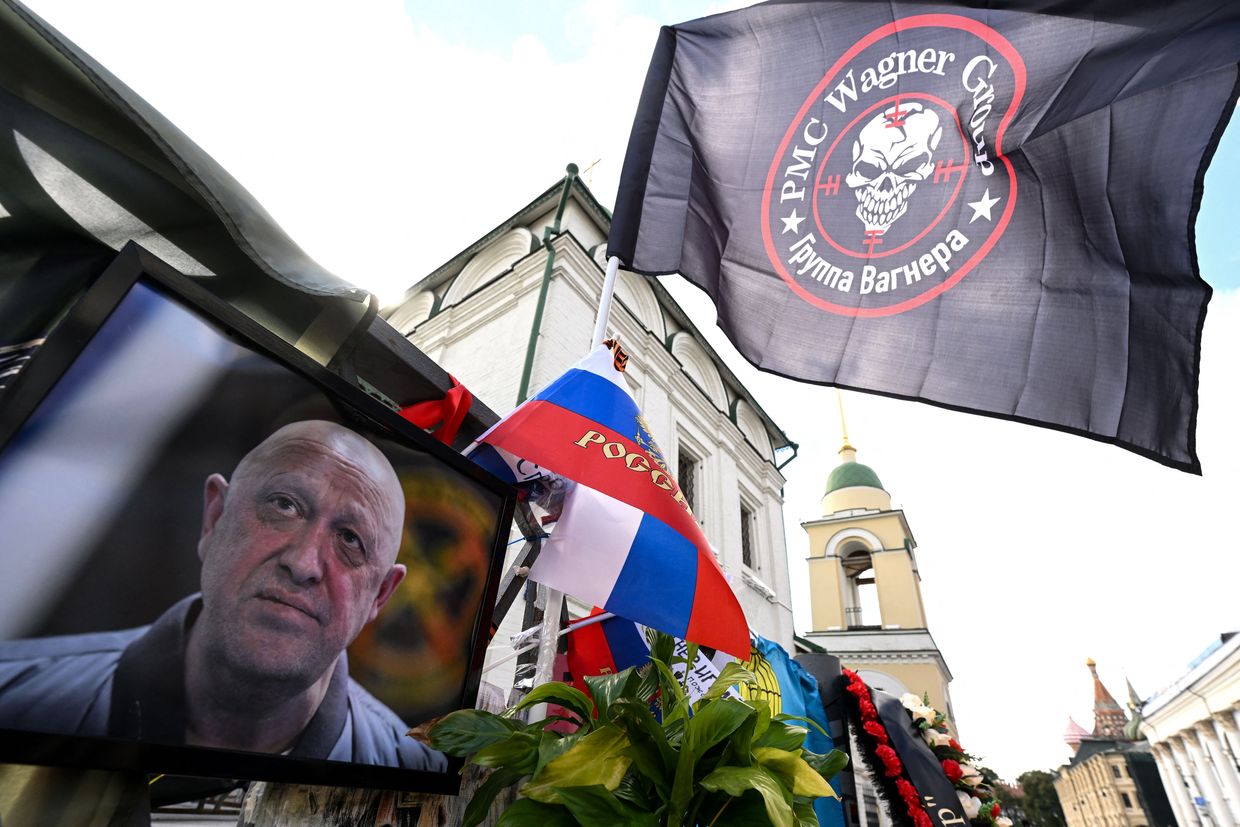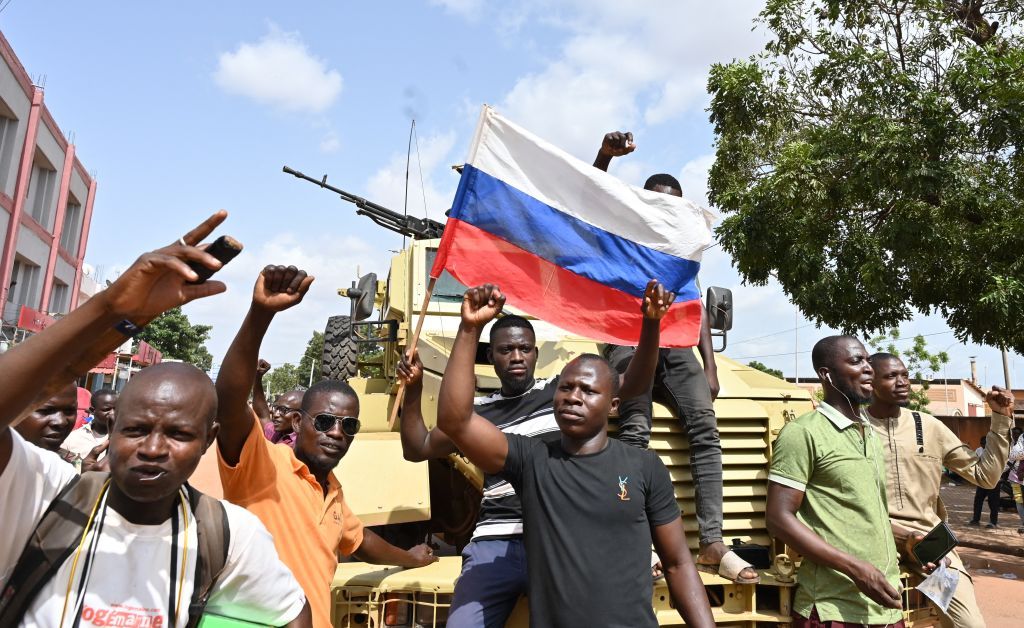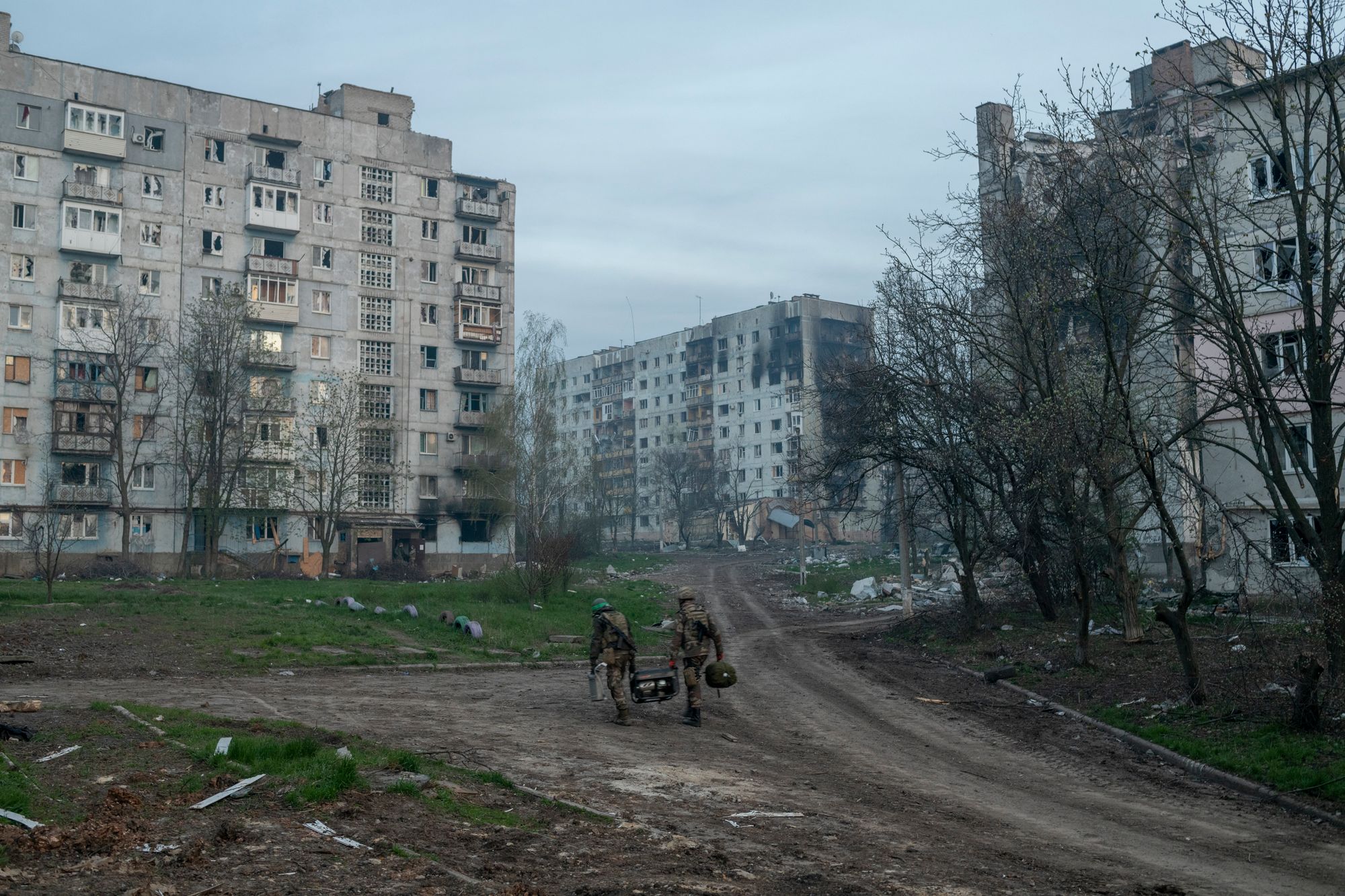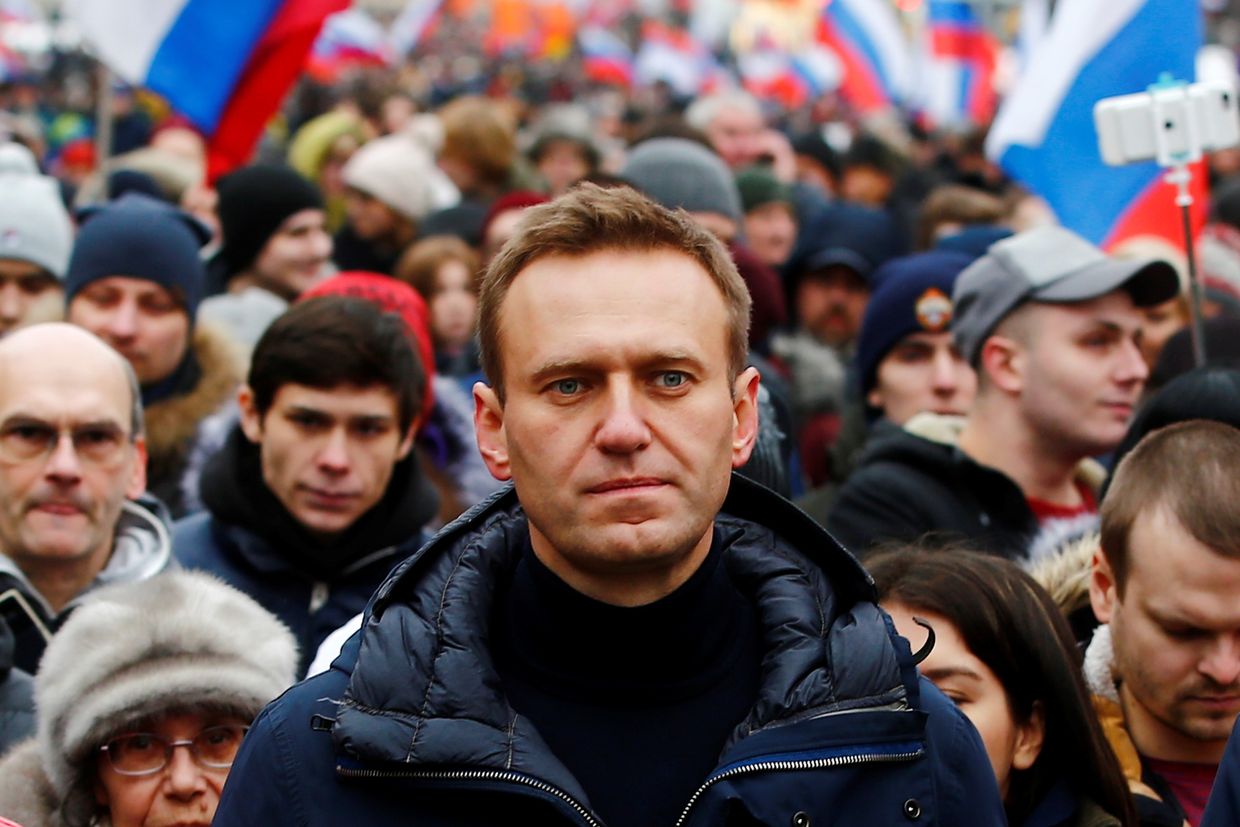Prigozhin’s Wagner Group accused of plotting attacks on Chevron, cooperating with Al Qaeda, leaked emails show

Members of the Wagner Group sit atop a tank in a street in the city of Rostov-on-Don on June 24, 2023. (Roman Romokhov/AFP via Getty Images)
The late Russian warlord Yevgeny Prigozhin's Wagner mercenary force has been accused of plotting attacks against Western infrastructure in Africa, including U.S. oil company Chevron's pipelines, according to the leaked correspondence of Prigozhin's Concord Group obtained by Ukraine's Channel 24.
Another accusation is that Wagner mercenaries have allegedly cooperated with terrorists, including Al Qaeda, in Africa.
The Kyiv Independent could not independently verify the information.
The hacked correspondence contains numerous emails written by relatives of Wagner mercenaries killed in Ukraine, as well as mothers and fathers asking Prigozhin to hire their sons.
The obtained emails also shed light on a scandal involving food poisoning allegedly caused by Concord Group.
The group did not respond to a request for comment.
Prigozhin, once a trusted confidant of Russian President Vladimir Putin, rose to infamy as the mastermind behind Wagner, Russia's most notorious mercenary force. Wagner fighters have left their mark across Africa, Syria, and Ukraine — most notably in the grinding battles in the country's Donetsk Oblast, where they spearheaded Russia's offensive from 2022 to 2023.
However, in June 2023, Prigozhin fell out with the Kremlin and led an armed rebellion, only to abruptly call it off after negotiations with Putin. Two months later, in August 2023, Prigozhin was killed in a plane crash, an incident that many independent observers have pinned on Putin as the likely orchestrator.
Wagner's activities in Africa
In March 2021, Igor Smirnov wrote an email to Prigozhin's Concord Group, saying that retired Russian officers were expected to take part in attacks on foreign infrastructure facilities in West Africa.
Smirnov, allegedly a former Russian intelligence officer who claimed to be working for oligarch Mikhail Khodorkovsky, was attempting to frame or warn the group. Khodorkovsky's spokesman Maxim Dbar told the Kyiv Independent that he did not know Smirnov, and he had never worked for Khodorkovsky.
Smirnov claimed that "a group of Russians is contacting many armed groups in West Africa, including Ansaru, an Al Qaeda affiliate in Nigeria."
"In exchange for attacks on Western oil companies, jihadists are helping to arm militants in the Niger Delta under a direct agreement with the Russians," Smirnov said. "After the first attacks on Western companies, al Qaeda in the Islamic Maghreb will take responsibility for that."

He also claimed that he had video and audio recordings implicating a Wagner mercenary in the negotiations about the attacks.
"All of this will soon come crashing down on your company, which destabilizes the situation in West Africa, cooperates with terrorists, and is waging an indirect war against the West," Smirnov added.
In another email, Smirnov also accused Wagner Group of extorting money from U.S. oil company Chevron in exchange for the security of the company's pipelines in Nigeria. He claimed that the extortion had been "documented by Khodorkovsky."
He also attached a video that allegedly shows an associate of Wagner Group's chief of staff, Andrei Troshev, meeting with Nigerian warlord Asari Dokubo.
This is not the first time Wagner mercenaries stand accused of illegal activities in Africa.
Journalist Orkhan Dzhemal, film director Alexander Rastorguyev, and cameraman Kirill Radchenko were killed in the Central African Republic in 2018 while investigating the activities of Wagner mercenaries there.
In 2019, Khodorkovsky's Dossier Center published an investigation according to which Wagner Group could have been behind the murder.
Chevron did not respond to a request for comment.
Killed Wagner fighters
The emails obtained by Channel 24 also reveal the consequences of Wagner Group's participation in Russia's offensives in Ukraine's Donetsk Oblast, including the Battle of Bakhmut, in 2022 and 2023.
Wagner Group recruited thousands of convicts who were pardoned by Putin in exchange for military service.
The convicts routinely took part in human wave attacks in Bakhmut and other areas, suffering disproportionately high casualties in the grinding offensives.
Starting from January 2023, many people sent emails to Wagner asking the company about their killed relatives and compensation for their deaths.
In January 2023, Ekaterina Merzlyak wrote that a 25-year-old Wagner fighter had been killed in December 2022 and later buried in the village of Krasnoselkup in the Yamal-Nenets Autonomous District.
"Fellow villagers are outraged that not a single representative of the local authorities showed due respect to the parents of our hero," she said. "They did not assist with the organization of the funeral or with transportation. There was complete silence as if nothing had happened."

Merzlyak also wrote that his "father had to transport the coffin himself with a trailer over a bumpy winter road for five hours, despite the fact that our administration finds it easy to bring in some singer by helicopter for City Day celebrations."
The correspondence also contains emails written by prison inmates' mothers asking Wagner to recruit their sons.
"Dear Yevgeny Viktorovich (Prigozhin), I am asking for your help! Please help my son redeem himself," one of them wrote to Prigozhin in November 2022. "My son went to Moscow to earn a living. Unfortunately, he got into trouble there and ended up in pretrial detention."
She wrote to Prigozizhin, asking him "to help my son get to the front" and saying that "he is very eager for your help!"
A man named Andrei Lapshin wrote in April 2023 that his 15-year old son, a cadet at a military school, is "deeply engaged in the patriotic agenda, sees his future in the ranks of Russian law enforcement agencies and is an avid fan of Wagner Group."
"Therefore, I would like to ask for your help in possibly arranging a job for him during the summer break — so that he doesn't waste his time working at some chain café or as a courier, but rather gets involved in a real, serious, necessary, and useful task for our Motherland," Lapshin added.
Some other emails were more critical of Wagner Group's activities.
A woman named Dinara Satanova wrote in July 2023 that the hands of Wagner Group's leadership were "stained with the blood of our children, husbands, and brothers."
"We are aware of the facts of killings, abuse, denial of medical assistance, and starvation, despite all efforts to conceal them," she said.
Satanova said that Wagner's drive to recruit convicts was "like slave trade from which the company made millions."
"You have destroyed and ruined our families, our children," she said. "On what grounds were children under the age of 22 recruited? Mothers were not informed, and no consent was given."
Food poisoning scandal
Apart from military activities, the correspondence covers Concord Group's food procurement schemes.
In 2019, Russian opposition leader Alexei Navalny's team exposed Concord Group's low-quality food deliveries to schools and kindergartens in Moscow and St. Petersburg, which resulted in the poisoning of hundreds of children.
Amid the scandal, many parents sent emails to Concord Group and demanded compensation.
In response to the accusations, in August 2019, Prigozhin accused Navalny and his associate Lyubov Sobol of orchestrating the poisoning, according to the leaked correspondence.
He claimed that Navalny and Sobol "extorted 300 million rubles ($3 million) to avoid stirring up a scandal regarding the children."

"We have made significant progress in this investigation and do not rule out the possibility that the poisoning incident was the result of a blatant act of sabotage, as numerous facts suggest," Prigozhin said. "As you know, Sobol is a person willing to commit any crime to become a politician... We have witnesses who confirm that Sobol was directly involved in the children's illness."
He claimed that Sobol and Navalny "could have been the masterminds and organizers of this terrible crime."
Despite Prigozhin's claims, even a Russian court recognized in 2019 that Concord Group was to blame for the food poisoning and ordered it to pay compensation.
Navalny himself survived a poisoning attempt in 2020.
A joint investigation by The Insider, Bellingcat, CNN, and Der Spiegel revealed that Navalny had been poisoned with the Novichok nerve agent by agents of Russia's Federal Security Service.
In February 2024, Navalny died in a Russian prison. Independent experts say that he was either killed intentionally or died due to harsh conditions and lack of medical treatment.
Navalny's team did not respond to a request for comment.














